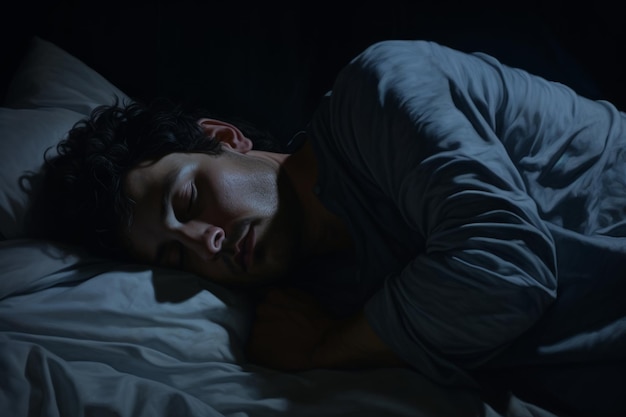We’ve all been there: in bed, wide awake, tossing and turning without being able to fall asleep, knowing that a long day of flying awaits us – not to mention commuting. The next time this happens to you, try this U.S. military technique and you’ll apparently doze off within two minutes.
There are many scientific reasons why it might be hard for you to get to sleep, but one trick may thwart that: A method used by the U.S. military can reportedly help you fall asleep in 120 seconds, and has a 96% success rate after six weeks of practice. The tips were first outlined in a 1981 book, Relax and Win: Championship Performance, by Lloyd Bud Winter.
The technique involves two broad steps.
First step
Completely clear your mind. That may be easier said than done, but it’s essential for getting to sleep quickly. The book suggests that it should take about a minute and a half to clear your mind, especially at first, and this time is in addition to the 120-seconds sleep technique. To clear your mind, the book suggests you first relax the muscles in your face, including your tongue, jaw, and the muscles around your eyes. Drop your shoulders as low as they’ll go, and relax your upper and lower arm on one side and then the other. Next, breathe out and relax your chest. Finally, relax your legs: your thighs and then your calves.
Second step
Recalling a serene memory or imagining a peaceful setting can help reduce the stressors of the day to prepare your mind and body for sleep. After trying to clear your mind, is to picture one of three mental images: lying in a canoe on a calm lake with only blue sky above you, snuggling in a black velvet hammock in a pitch-black room, or repeating ‘don’t think, don’t think’ for 10 seconds. Methodically visualize your stress leaving the body as you embrace each sensory detail of your imagined scene. Take slow, deep breaths and focus on the details, including sights, sounds, and smells to immerse yourself in the calming space.
The technique works for almost everyone. If you’re one of the 4% that it doesn’t help, the National Sleep Foundation suggests keeping your bedroom cool, quiet, and dark; avoiding caffeine; not eating, drinking, or exercising within a few hours of bedtime; and putting away your smartphones, laptops, and other screens an hour before trying to sleep: using these devices also keeps your mind in an active and engaged state.
Not getting enough sleep can make us grouchy and irritable, but it can also lead to more significant health problems. Lack of rest can impact the ability to learn and concentrate. Sleep deprivation is also linked with cardiovascular diseases, like high blood pressure.


